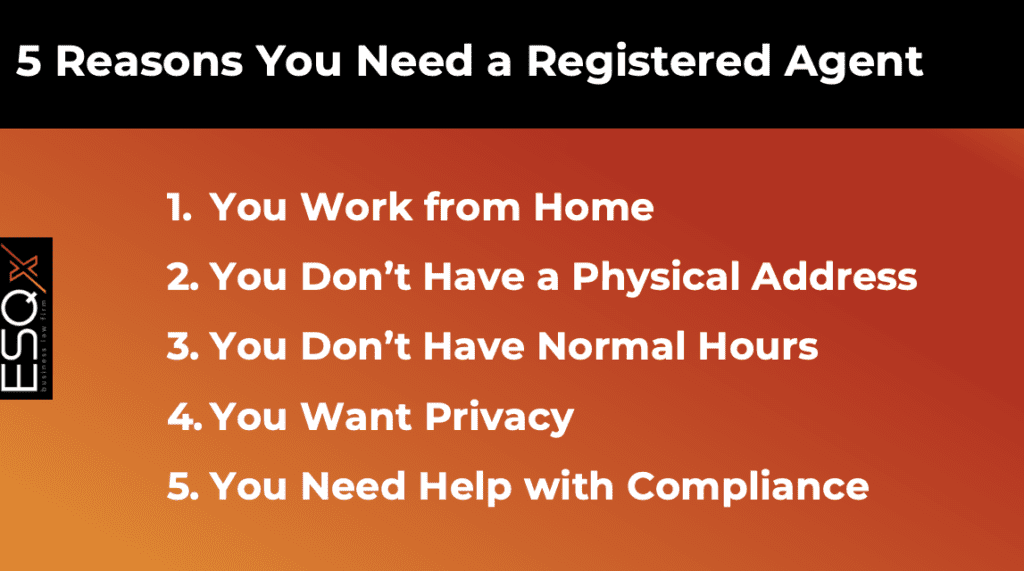Business LLC Formation
Get It Right from the Beginning
Forming a Limited Liability Company (LLC) in Pennsylvania?
At ESQx Business Law, we help entrepreneurs choose to file their businesses as an LLC (limited liability company) more frequently than any other entity. It is a popular business structure that offers several benefits to its owners. Here are some of the key benefits of an LLC:
- Limited liability protection: The main benefit of an LLC is limited liability protection. This means that the owners of the LLC (called members) are generally not personally responsible for the debts and obligations of the business. If the LLC faces a lawsuit or other legal claim, the personal assets of the members are typically protected from being used to satisfy the LLC’s debts.
- Pass-through taxation: LLCs are generally taxed as pass-through entities, meaning that the profits and losses of the business are passed through to the individual members, who report them on their personal tax returns. This can be advantageous because it avoids the double taxation that can occur with a traditional corporation.
- Flexible management structure: LLCs offer flexibility in terms of management structure. Members can choose to manage the business themselves or appoint a manager to handle day-to-day operations. This can be useful for businesses with multiple owners who may not all want to be involved in the management of the company.
- Easy to form and maintain: LLCs are generally easy to form and maintain compared to other business structures, such as corporations. The requirements for forming an LLC vary by state but typically involve filing articles of organization with the state and paying a fee. LLCs also have fewer formalities and paperwork requirements than corporations.
- Credibility and professionalism: Having an LLC can add credibility and professionalism to your business. This is because LLCs are recognized legal entities that offer some protection to members, which can be reassuring to customers, clients, and investors.
Overall, an LLC can be an excellent choice for small business owners who want limited liability protection, pass-through taxation, and flexibility in management structure, while also keeping the formation and maintenance process relatively simple. However, it’s important to consult with a business lawyer to determine if an LLC is the best choice for your specific business needs and goals. That’s where we can help.
What We Do
How Do You Form an LLC?
At ESQx, we can help you form an LLC in a few easy steps:
- Obtain an EIN: An Employer Identification Number (EIN) is a unique nine-digit number that the IRS assigns to businesses for tax purposes. You will need an EIN to open a business bank account, pay taxes, and hire employees. In Pennsylvania, it’s advisable to include this in your certificate of organization, so we like to get this step done first.
- Choose a name: Choose a name for your LLC that is unique and not already in use by another business in your state. Let it speak to the nature and value proposition of the service or product you are offering. We can help you check the availability of your desired name through the Secretary of State’s office.
- Appoint a registered agent: Appoint a registered agent, who is someone responsible for receiving legal and tax documents on behalf of the LLC. The registered agent can be an individual or a company that is authorized to do business in your state. We go into this in more detail in a blog post on the subject.
- File certificate of organization: Prepare and file certificate of organization with the Secretary of State’s office. The certificate of organization include the name of the LLC, the purpose of the LLC, the name and address of the registered agent, and the names and addresses of the LLC’s members.
- Draft an operating agreement: While not required, an operating agreement is a legal document that outlines the ownership and management structure of the LLC, as well as the rights and responsibilities of the members. This step is critical in establishing that you are operating the business as a separate entity and may be used as evidence against a plaintiff who attempts to pierce the corporate veil and come after your personal assets in the event of a lawsuit.
- Obtain necessary licenses and permits: Depending on the nature of your business, you may need to obtain certain licenses and permits from state or local agencies before you can begin operating.
- Profit! Just kidding. You won’t be rolling in dough on day one, but you’ll have your business up and running with the credibility and legitimacy of businesses many times your size.
The process of forming an LLC can be complex, so get in touch with us today.
LLC or Corporation? You Choose
Selecting your business entity type is one of the most important decisions you’ll make when starting a business. The choice between an LLC and a corporation depends on the goals and needs of the business and its owners. LLCs offer more flexibility in management structure and taxation, while corporations offer more extensive liability protection and a more structured management hierarchy. At ESQx, we can help you pick which type of entity is best for your current situation and future goals.
Management Structure
LLCs are typically managed by their owners, who are called members. Members have the flexibility to manage the company themselves, or they can appoint a manager to handle day-to-day operations. In contrast, corporations have a more structured management hierarchy, with a board of directors overseeing the company’s operations and making major decisions.
Taxation
LLCs are generally taxed as pass-through entities, which means that the profits and losses of the business are passed through to the individual members, who report them on their personal tax returns. Corporations, on the other hand, can be taxed as C corporations, which are subject to corporate income tax, or S corporations, which are also pass-through entities. The choice of taxation depends on the goals of the business and its owners.
Liability Protection
Both LLCs and corporations offer liability protection to their owners, but in slightly different ways. LLCs offer limited liability protection, which means that the personal assets of the members are typically protected from being used to satisfy the LLC’s debts and legal obligations. Corporations, on the other hand, offer more extensive liability protection, which means that the personal assets of the shareholders are typically protected from the debts and legal obligations of the corporation.
What We Do
What is a Registered Agent?
If you’re new to starting a business, you may be baffled at the concept of a registered agent. Not only is this poorly-named term almost never explained to fledgling entrepreneurs, there is little mention of it anywhere in society at large. Basically, a registered agent is a person who sits at a desk all day and waits for you to get sued. Say what?
Since the bureaucrats of the Commonwealth of Pennsylvania are never to be outdone for their creative use of language, in our jurisdiction a registered agent is called a “registered office” or “commercial registered office provider.” The Commonwealth wants to ensure that it’s possible for the public to contact the owners of a business if something goes wrong. If you operate a business, you are entering into the stream of commerce, and therefore must publicly avail yourself to be responsible for your actions. As tempting as it sounds, you can’t shield your business from legal liability by hiding its address. Although Kramer was able to stop his mail, I’m afraid you cannot.
So, the government requires all businesses to officially state where people should send a “service of process” should there be something wrong. This can be a lawsuit, a deposition, or any other legal proceeding. Furthermore, this address is used for official correspondence from the Commonwealth of Pennsylvania. They will send you correspondence for things like the decennial report, certificates of good standing, and more. You can act as your own registered agent, but keep in mind if you do this, you will need to disclose an address publicly. For many people who work from home, this may be an unsavory idea. In those situations, a registered agent will help you maintain your anonymity.

What We Do
When Did LLCs Become Popular?
The concept of limited liability protection for business owners has been around for centuries, but the modern limited liability company (LLC) structure as we know it today was first introduced in the United States in the late 1970s. The first LLC law was enacted in Wyoming in 1977, followed by Florida in 1982. These early LLC laws were created in response to a growing need for a business structure that offered the liability protection of a corporation, but with more flexibility and simplicity. Over the next few decades, other states began to adopt LLC laws, and by the early 1990s, LLCs had become a popular business structure choice for entrepreneurs and small business owners. Today, all 50 states and the District of Columbia have LLC statutes.
Let's Talk
Ready to Get Started?
There’s so much more we want to tell you about forming a business if you’ll give us the opportunity! If you’re ready to receive experienced business law formation advice, don’t hesitate to reach out today. We can’t wait to meet you. Did we mention every consultation is free?

